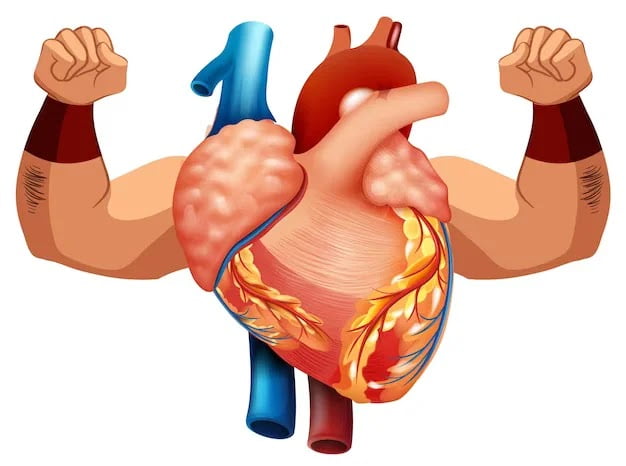Ever had a day when you felt fine waking up, but a few hours later your chest started burning? If GERD (Gastroesophageal Reflux Disease) has been a problem for you, you’re not the only one—and you might have noticed that your symptoms get worse when you don’t eat breakfast. This article will look at how meal habits and GERD are connected and how skipping breakfast can make your symptoms flare up. We’ll get into why this happens how you can handle your condition better, and give you some breakfast ideas that might help you feel good.
Understanding GERD: What Is It?
Gastroesophageal Reflux Disease (GERD) is a long-term problem where stomach acid goes back up into your food pipe causing heartburn, food coming back up, and discomfort. It’s more than just an occasional bother; if you don’t treat it, GERD can cause serious problems, like inflammation in your food pipe and a condition called Barrett’s esophagus. Knowing the signs is key to handling it well, and what you eat has a big impact on controlling the symptoms.
Common Symptoms of GERD
It’s important to recognize the symptoms of GERD, which may vary from person to person. Common signs include:
- Heartburn: A burning sensation in the chest.
- Regurgitation: A sour or bitter taste in the mouth.
- Difficulty swallowing: Feeling like food is stuck in your throat.
- Chronic cough: Especially at night.
- Sore throat: Typically aggravated by reflux.
Understanding these symptoms helps in managing the condition, including the impact that diet and meal timing can have.
The Connection Between Note Eating Breakfast and GERD

The Importance of Breakfast
People often say breakfast is the day’s key meal, and those with GERD can face problems if they don’t eat it. Here’s why:
- Empty Stomach: When you don’t eat breakfast, your stomach makes acid without food to break down. This extra acid can boost your chances of having reflux.
- More Hunger: Not eating meals can make you overeat later leading to bigger meals that can make GERD symptoms worse.
- Upset Body Clock: Eating helps keep your body in balance. Missing breakfast can throw off your system making your gut more likely to get irritated.
Morning Acid Production
Your body makes stomach acid to help digest food, and this doesn’t stop just because you’re not eating. On an empty stomach, acid can build up making you more likely to feel symptoms like heartburn when you do eat.
How Missing Breakfast Leads to GERD Problems
Changes in Hormones
When you don’t eat breakfast, your body’s hormone balance can get out of whack. Hormones like gastrin, which makes your stomach produce acid, can go into overdrive when there’s no food around. This means too much acid builds up, which can cause reflux.
Effect on Esophageal Function
Not eating can harm how your esophagus works to move food to your stomach. When you eat after a long time without food, your esophagus might not work well, which can make acid reflux more likely.
Higher Stress Levels
People who skip breakfast often feel more stressed. Stress can make GERD symptoms worse creating a cycle where poor eating makes the condition worse, which then causes more stress.
How Meal Timing Helps Manage GERD
Stick to a Schedule
Eating at set times is crucial to control GERD. Having meals at the same times each day helps your body make acid at the right times and keeps your digestion working better.
Do You Need Three Meals a Day?
Although many health experts suggest eating three meals a day, you should pay attention to your body’s signals. Some individuals may do better with smaller more regular meals, while others might prefer standard mealtimes. The aim is to steer clear of long periods without food when it comes to breakfast.
Foods to Include in Your Breakfast for GERD

Lean Proteins
Adding lean proteins such as eggs or low-fat Greek yogurt can help you get your day off to a good start. These foods have a lower chance of triggering acid reflux.
Whole Grains
Whole-grain products like oatmeal or whole-grain toast give you the necessary fiber and help soak up extra stomach acid. They also keep you full longer stopping you from getting hungry before lunch.
Low-Fat Dairy
Go for low-fat dairy choices such as skim milk or low-fat cheese, which can help balance stomach acid and give you a good start to your day.
Non-Citrus Fruits
Bananas, melons, and apples make great breakfast picks, as these non-citrus fruits can help lower acidity and don’t upset your stomach as much.
Foods to Avoid at Breakfast
Knowing what to include is key, but understanding what to steer clear of is just as important:
High-Fat Foods
Fatty breakfast items like sausage and bacon can loosen the lower esophageal sphincter, which makes reflux more likely.
Spicy Foods
Many people with GERD can’t handle spices. To keep your symptoms in check, you might want to skip salsa or spicy omelets at breakfast.
Citrus Juices
Though they’re refreshing, orange or grapefruit juices are very acidic and can make symptoms worse. It’s safer to choose non-citrus drinks instead.
Practical Breakfast Ideas for GERD Sufferers
1. Oatmeal with Almond Milk
A hot bowl of oatmeal prepared using almond milk and topped with banana slices offers a comforting start to your day.
2. Scrambled Eggs with Spinach
Scrambled eggs mixed with fresh spinach give you a nourishing substantial choice that has a lower chance to set off GERD.
3. Whole-grain Toast with Avocado
Mashed avocado spread on whole-grain toast, with a light sprinkle of salt, creates a fulfilling breakfast that’s easy on the stomach.
Lifestyle Changes to Manage GERD
Elevate Your Head While Sleeping
Sleeping flat can worsen reflux symptoms at night. Raising your bed’s head 6 to 8 inches can help reduce nighttime symptoms.
Wear Loose Clothes
Tight clothes can push on your stomach making acid reflux more likely. Choose looser outfits after you eat.
Drink Enough
Drinking lots of water during the day can dilute stomach acid, which makes GERD symptoms less likely to occur.
When to Talk to a Doctor
If you often have GERD symptoms, you should see a doctor. They might suggest medicine, lifestyle changes, or diet adjustments that fit your needs.
Keep a Food Diary
Think about keeping a food diary to record what you eat and how it impacts your symptoms. This will help you spot potential triggers and boost your overall management plan.
Conclusion
Skipping breakfast has a big effect on your GERD symptoms. This happens because of more acid in your stomach, changes in hormones, and bad eating habits that follow for the rest of the day. To keep your digestive system healthy, you need a good breakfast. This should have lean proteins whole grains, and fruits that aren’t citrus. The key is to make a routine that works for you. You need to listen to your body and know which foods help or hurt your condition.
If you take charge – and get medical help when you need it – you can keep your GERD symptoms under control and live a healthier life. Your breakfast matters, not just for today, but for your health in the long run!



